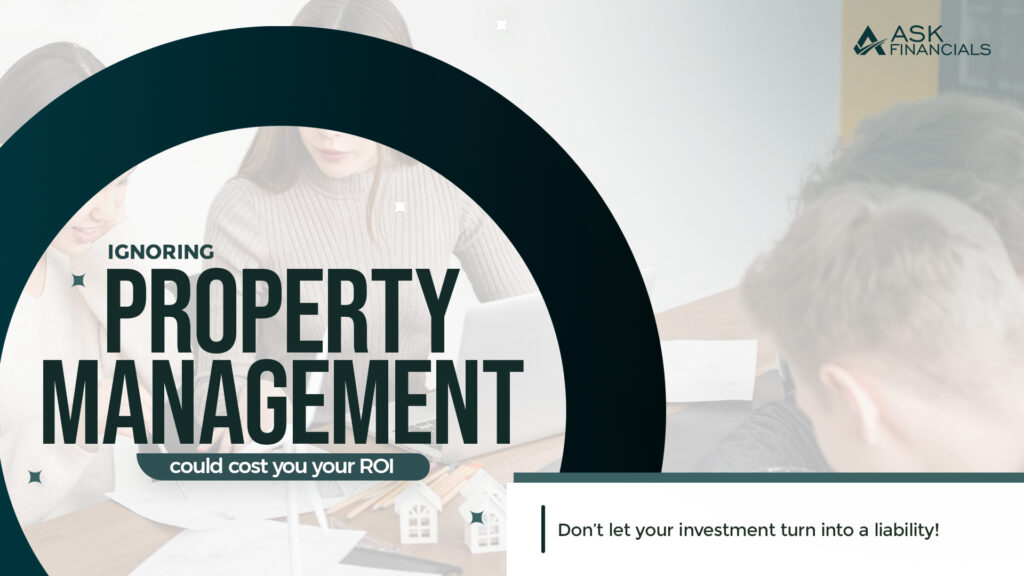Smart Strategies for Managing Your Investment Property After Purchase to secure & increase ROI
If you think having an investment property is simply a matter of exchanging the signed contracts after completing financial transactions, finding a tenant, and waiting for the rental income, think again. Buying an investment property in Australia is like starting a new business; to keep this business profitable, you need to follow some smart strategies for managing your investment property post-purchase. You also have some rights and responsibilities as a landlord. Managing the investment property to secure and increase ROI is a key concern of most investors because failure to manage an investment property impacts your passive income and invites some legal problems. Your mortgage broker may be a great help to manage your investment property successfully but you need to be active and informed about the best that can be done to add financial value to your property. This blog shares smart strategic practices that have been effective in increasing returns from investment properties in recent years.
What Is the Average Return on An Investment Property in Australia?
Your primary aim invest in property is get an above-average return on investment (ROI) to increase your long-term wealth faster. There are two key components of ROI –
- Rental Yield: Q. How can you calculate rental yield? Ans. (Annual rental income ÷ property purchase price) x100.
Rental yields between 4 – 5% are considered good in the current scenario of the Australian real estate market. The fig-1 shows average rental gain from rental properties in Australia in September 2023 and September 2024. In Darwin, the rental yield was measured at 6.27 percent; it was the highest across Australian capital cities in 3rd quarter of 2024.
- Capital Growth: Q. How can you calculate capital yield? Ans. (Increase in property value ÷ purchase price) x 100. Capital growth reflects the increase in the market value of property over time. “The annual average capital growth of property investment in Australia has been 6.3%” – https://www.news.com.au/.
➤Over 2.2 million Australians had investment properties in June 2024; the figure reflects Australians’ trust in real estate as being a prominent investment channel.
Now, the question is how to manage your property to ensure maximum return on your investment. Here, I list nine smart strategic tips that may help you manage investment property successfully to achieve your financial goals.
➤Nine Strategic Tips to Help You Manage Investment Property Successfully
- Secure Insurance: The first thing you should do is secure insurance for the property. The security cover protects your property as well as your financial interests if anything goes wrong. Insurance cover includes landlord insurance, building insurance, and contents inside the property. An income protection plan is also available to take care of your financial obligations in case of sudden loss of income because of injury or illness.
- Know The Tax Deductions That You’re Entitled to Get Economic Benefits: Investment property makes you entitled to tax deductions like insurance premiums, interest on the investment loan, depreciation, body corporate fees, and others. Depreciation tax deduction is an important economic benefit for homeowners because you don’t need to spend additional money to claim it.

- Make it Ready for Tenants: A thorough assessment of the property is necessary because you list it to rent. Identify required repairs, maintenance, and potential renovations to enhance the potential of renal income. To simplify the task, prepare a checklist to ensure the performance of smoke alarms, blind cords, heating/cooling systems, water supply, window locks, electrical fittings, etc. The buyers’ agent, mortgage brokers, and real estate brokers, investment consultants advise to get landlord insurance also.
- List Your Property: You must have a strategic marketing approach to attract the right type of tenants. Have a fair idea about the justified rent of your property. You can visit the open house also to check what rental options are available in neighborhood. Hosting an open house is a good approach to attend a number of willing tenants provided you have cleaned and maintained your property.
- Managing Inspections: The scheduled inspections help you assess ‘how well your property is being maintained’. The RTA allows homeowners to inspect their rental property up to four times a year with a seven-day written notice. Follow the state’s inspection laws about inspection frequency, notice period, entry procedures, etc. Keep records and photographs to avoid any confusion or dispute.
- Stay Informed and Educated: knowledge is the greatest tool that helps you manage your investment property to achieve short-term and long-term financial goals. Stay informed of the latest trends in the rental property market. Efficient financial management includes establishing offset accounts, preparing in advance to pay the dues, and ensuring cash flow.
- Strategize Your Property Investment: Your initial investment in a property purchase isn’t your last; it is the start of the journey to achieve better economic growth. Your investment strategy should be aligned with your financial goals. You may have different strategies for passive income generated by letting the property and capital grow by using equity for loan refinancing and getting more funds to invest further.
- Choose a Property Management Team: Many property investors don’t get enough time to manage their property by themselves. If you too experience the same problem, you can hire a proficient property management agency to handle property management tasks including rent collection, coordinating repairs, finding quality tenants, managing arrears, and others.
- Build a Local Network: The local network is paramount for successful post-purchase property management especially if you are living far from your property. Develop contacts with local property managers, mortgage brokers, real estate agents, investment consultants, and others. Strong relationships with real estate professionals having different expertise help you make informed decisions.
➤FAQs About Preparing an Investment Property Management After Purchase
Q 1: What is investment property management?
Ans. An investment property is a property that is purchased with the prime goal of getting a higher financial return. Owning an investment property makes you responsible for managing that property as per local norms. Investment property management involves a range of tasks like maintaining it up to the standards, paying the dues, documentation, letting, selling at the right time, etc.
Q 2: Should I manage my investment property by myself or hire a property management agency?
Ans. Hiring a property management agency is the easiest way to manage an investment property without hassle. The local property management agency handles all property management tasks on your behalf allowing you to see your investment growing.
Q 3: How much are property management charges in Australia?
Ans. Property management agency charges based on the provided services. Leading investment property management agencies offer personalized plans allowing you to choose the services and fix the scope of services.
Q 4: What is the most complex part of investment property management?
Ans. Finding the right tenant, who could keep the property properly, is the hardest part of investment property management.
Q 5: Can a tenant break the ‘Tenancy Agreement’?
Ans. If a tenant breaks the agreement to vacate the property earlier than the specified time, the tenant is responsible for paying 1-4 weeks rent based on the percentage of fixed-term expired.
To learn more about investment property management, you can book a free chat at Ask Financials.


